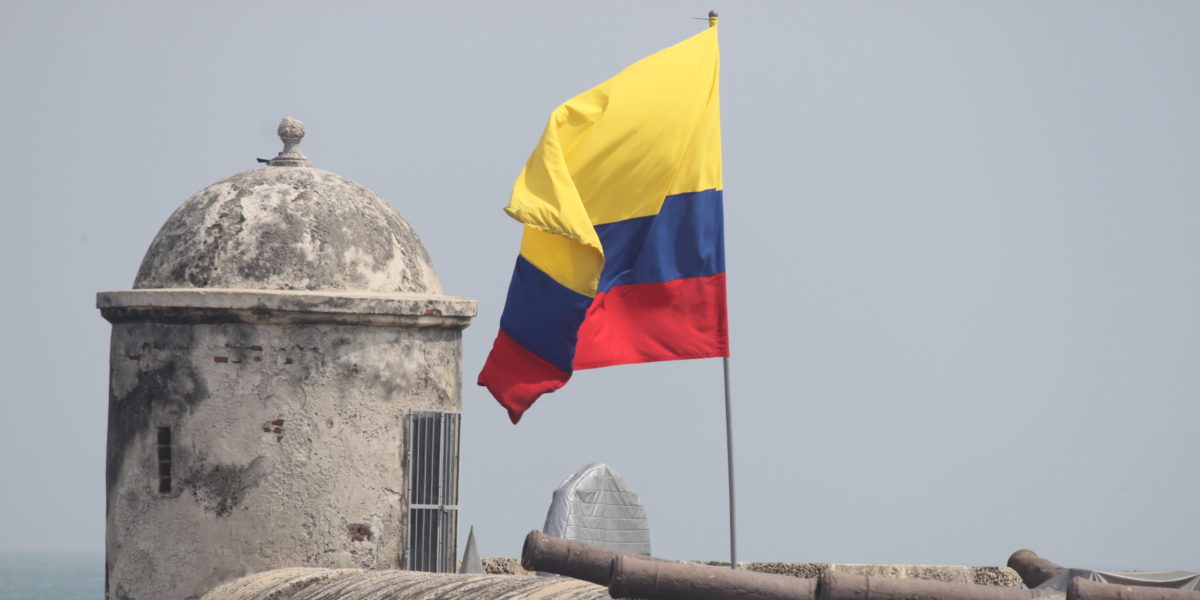Colombian’s are heading to the polls on May 29 to vote in the 2022 presidential election and a new future for the country. Six years after the Colombian Peace Accords were signed “peace” still remains a distant reality for some.
When the Accords were signed in 2016 there was both jubilant hope and realistic skepticism that they would end more than five decades of rampant fascist violence rooted in territorial dispossession.
Six years later, systemic, state-led terror and targeted violence continues, particularly against marginalized Indigenous, Afro-descendent and peasant Colombians.
Over the past 200 years they have been pushed off their vast territories by cattle ranching and large-scale agricultural companies and multinational extractive corporations.
“The peace accords were signed under prospective justice to settle the rural reform, the real cause of the war and the situation we are living now,” says Armando Wouriyu Valbuena, a Wayuu Indigenous Leader, member of the National Indigenous and Campesino Organization (ONIC) and Technical Secretary of the Special High-Level Commission with Ethnic Peoples.
Election victory will create opportunities for reform
He says there has been no real advances in the last six years on the necessary reforms due to lack of will by the Colombian state. That could start to change in a few days.
In a May 11th webinar with Common Frontiers, the Atlantic Regional Solidarity Network and the Colombia Working Group, Wouriyu and panelist Jancy Stella Ortega from the Permanent Committee for the Defense of Human Rights (CPDH) denounced the violent actions of the current Duque Administration.
The Indigenous social movement leaders warned that a win by “Team Colombia”, a right/centre-right political coalition led by Federico Gutierrez, will be a continuation of neoliberal policies – long supported by the Canadian government Project Accompagnement Solidarité Colombie – that have served to protect the wealthiest in the country and promote increased inequality.
“200 years of republican education, which is patriarchal, religious and in Spanish, has led to a slave-like mentality (of the population),” Wouriyu remarked in the webinar pointing to the historic challenges that colonization has imposed on the majority. He sees the possibility of a win by the leftist “Historical Pact” political coalition led by Gustavo Petro as “an opportunity and a breakthrough.”
There is an unprecedented moment to fight the legacy of colonization – racism, sexism, classism – head on, led by Petro and Goldman Environmental Prize Winner Francia Marquez and Gustavo Petro Marquez is an Afro-Colombia community leader who has fought to keep Canadian mining out of her ancestral territory.
“We can become the government and start an efficient and effective public education that allows Colombians to engage in thinking about dignity and freedom,” said Wouriyu who reflected on the need for a shift not only in politics but the broader vision of the country. “We have to go back to the origins, to position the economy of the people and the laws of nature.”
Corporate interests represent obstacles to reform
Challenging the status quo in Colombia is particularly radical – and dangerous – given the economic and political power that national and transnational mining, agricultural, hydro-carbon and cattle ranching interests exert over communities struggling to defend their territories and the environment.
Jancy Stella Ortega, says that with the rising support for the Historical Pact the elites are in “total despair” and doing everything in their power to provoke fear among the electorate and in the past few months, things have only gotten worse.
“Violence has increased in an exaggerated, exorbitant way. We see how the state, together with the Colombian armed forces, the national police – public security forces that should be defending the rights of the Bolivarian peoples – are against the communities to spread terror, to exercise their will around the elections. They have their candidate, who represents their interests,” said Ortega.
“The government has modified the constitution to be able to justify forced displacement to exercise control of the territories, which benefit drug trafficking, and themselves, since these big cattle ranches and these big multinationals, are full of their relatives and their friends who displace, massacre, and dispossess the people and communities from the territories every day.”
The Historical Pact is currently sitting with a lead at the polls, around 40 per cent in some regions. Violence in advance of the election and obstacles that make it nearly impossible for the more than 5.6 million internally displaced people to vote, make free and fair elections very challenging in Colombia. If Petro becomes president there is no doubt that pressures will mount, including from Canada, to protect economic interests working in dispossessed Indigenous, peasant and Afro-Colombian territories. Ortega yearns for change despite the challenges that may come as the result of a Historic Pact win.
“If we continue with the same economic and governmental model, that we have had for 21 years, albeit with different names, we are going to live the worst and darkest night in the history of the country,” she said.
A Canadian delegation that was sent to Colombia to observe the election was organized by Common Frontiers, The Colombian Working Group, and the Canada Colombia Solidarity Committee includes reporters from rabble.ca.
Editor’s Note: The name of the author of this post has been updated.



